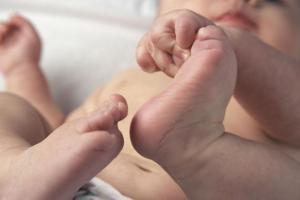For the study, published in the Journal of the American Academy of Child and Adolescent Psychiatry, the research team involved 227 identical twin pairs

Representational Image
Parents, take note. Your less affectionate and harsher behaviour towards your children can make them aggressive and anti-social, a new study has found.
The findings suggest that less parental warmth and more harshness in the home environment affect how aggressive children become and whether they lack empathy and a moral compass -- a set of characteristics known as callous-unemotional (CU) traits.
"The study convincingly shows that parenting -- and not just genes -- contributes to the development of risky callous-unemotional traits," said co-author Luke Hyde, Associate Professor at the University of Michigan, US.
"Because identical twins have the same DNA, we can be more sure that the differences in parenting the twins received affects the development of these traits," Hyde added.
For the study, published in the Journal of the American Academy of Child and Adolescent Psychiatry, the research team involved 227 identical twin pairs.
The team analysed small differences in the parenting that each twin experienced to determine whether these differences predicted the likelihood of anti-social behaviours emerging. They also assessed child behaviour by asking the mother to report on 35 traits related to aggression and CU traits.
The researchers found that the twins who experienced stricter or harsher treatment and less emotional warmth from parents had a greater chance of showing aggression and CU traits.
A subsequent adoption study, of parents and children who were not biologically related, turned up consistent results.
"We couldn't blame that on genetics because these children don't share genes with their parents," said lead author Rebecca Waller, Assistant Professor at the University of Pennsylvania.
"But it still didn't rule out the possibility that something about the child's genetic characteristics was evoking certain reactions from the adoptive parent," Waller added.
In other words, a parent who is warm and positive may have a hard time maintaining those behaviours if the child never reciprocates, the researchers noted.
Catch up on all the latest Crime, National, International and Hatke news here. Also, download the new mid-day Android and iOS apps to get the latest updates
 Subscribe today by clicking the link and stay updated with the latest news!" Click here!
Subscribe today by clicking the link and stay updated with the latest news!" Click here!









